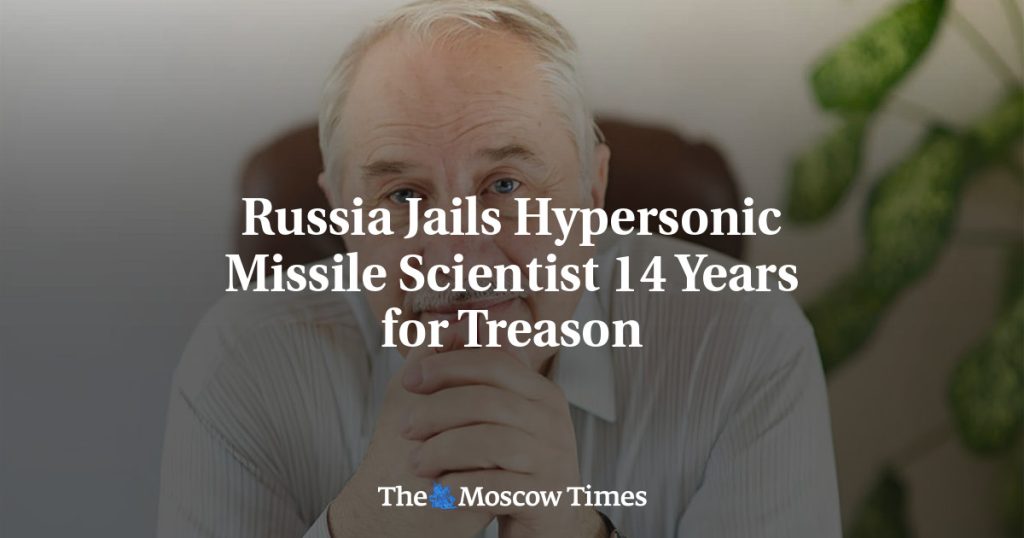A 77-year-old scientist named Anatoly Maslov has been sentenced to 14 years in a maximum-security prison in Russia on charges of state treason. The Russian court found him guilty of sharing top-secret information related to Russia’s hypersonic missile program with Germany. Maslov, who denied his guilt, had prosecutors originally requesting a 17-year prison sentence for his alleged actions. His defense attorneys argued that such a lengthy term would essentially be a life sentence due to his age and health issues, as the scientist suffered a heart attack while in pre-trial detention in February. Maslov’s attorney plans to appeal the court’s ruling.
Maslov, a specialist in hypersonics, worked as the chief researcher at the Institute of Theoretical and Applied Mechanics, part of the Siberian branch of Russia’s Academy of Sciences. Hypersonics is a theoretical field with important applications for Russia’s advanced missile program. Several other scientists from the Siberian city of Novosibirsk, including the head of the center where Maslov worked, have also been arrested on separate treason accusations since 2022. Last year, an open letter signed by members of Russia’s Academy of Sciences accused the authorities of targeting Maslov and two other hypersonic missile scientists for speaking at conferences abroad and participating in international projects.
The case of Anatoly Maslov is part of a larger crackdown on scientists in Russia who are believed to have shared sensitive information with foreign entities. The arrests of Maslov and other hypersonic missile scientists have raised concerns within the scientific community about academic freedom in Russia. The defense of Maslov plans to appeal the ruling of the St. Petersburg City Court, where Maslov was sentenced to 14 years in prison for state treason. The prosecutors had initially requested a longer prison sentence for the scientist before the court’s decision was made.
The Russian court’s ruling in Anatoly Maslov’s case comes amidst increasing tensions between Russia and Western countries, particularly NATO members. The sharing of sensitive information related to Russia’s hypersonic missile program with Germany has further fueled suspicions of espionage activities in the region. Maslov’s denial of guilt, despite being sentenced to 14 years in prison, highlights the complexity of the case and the challenges faced by scientists who work in sensitive fields in Russia. The defense’s plan to appeal the ruling indicates a continued legal battle over the charges of state treason leveled against Maslov.
The sentencing of Anatoly Maslov to 14 years in prison for state treason marks a significant development in the ongoing crackdown on scientists in Russia accused of sharing sensitive information with foreign entities. The case highlights the challenges faced by scientists working in sensitive fields, such as hypersonics, and raises questions about academic freedom and intellectual exchange in Russia. Maslov’s denial of guilt, the prosecutors’ request for a longer prison sentence, and his health issues further complicate the legal proceedings and point to a contentious legal battle ahead. The defense’s plan to appeal the ruling underscores the complexity and controversy surrounding the case.















